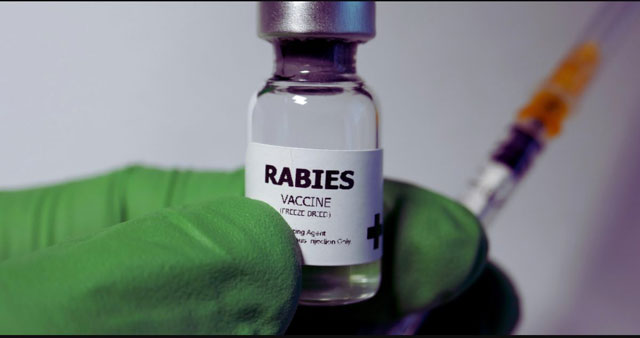Daijiworld Media Network - Thiruvananthapuram
Thiruvananthapuram, Nov 23: A simple dog bite turned into days of anxiety for Smitha (name changed), a resident of Attingal, who had already completed a full anti-rabies vaccination course six months ago. When she was bitten again recently, doctors advised that only a booster shot was required — warning her that repeating a full course so soon could trigger hyperimmune reactions.
Fear, however, got the better of her. Worried by reports of rare cases where vaccinated individuals still developed rabies, she insisted on another full vaccine course. To clear her doubts scientifically, doctors sent her blood sample to the Institute of Advanced Virology (IAV) to assess her antibody levels.

Dr. E. Sreekumar, Director of IAV, said the results were reassuring.
“Her sample showed an antibody titre of 16 IU/mL, far above the World Health Organisation (WHO) requirement of 0.5 IU/mL for adequate protection. It clearly proved she did not need the full course again,” he said.
New Low-Cost Test to Check Rabies Immunity
Rabies vaccination works by triggering strong neutralising antibodies against glycoprotein G, the viral protein that helps the virus enter human cells. Measuring these antibodies is crucial for confirming protection — especially for high-risk groups such as veterinarians, animal handlers, forest officials and pet owners.
Until now, only two gold-standard tests were used globally — RFFIT and FAVN.
However, both require handling live rabies virus in high-biosafety laboratories, are expensive and unsuitable for large-scale testing.
To address this gap, IAV scientists have developed a safe, simple and high-throughput pseudovirus-based assay.
Pseudoviruses mimic the rabies virus for testing but cannot cause disease, making them far safer to handle.
In April this year, IAV had reported a VSV-based pseudovirus assay that showed performance comparable to RFFIT for human samples. The team has now successfully extended the same method to assess immunity produced by animal rabies vaccines as well.
A Boost for Public Health Surveillance
“Both RFFIT and FAVN have limitations for large-scale use. Our assay is simpler, low-cost and suitable for surveillance in rabies-endemic regions,” Dr. Sreekumar said.
The development comes in the wake of at least three rabies deaths in Kerala last year involving vaccinated children, incidents that had raised public concern about vaccine efficacy.
The new test will help verify whether the vaccine has indeed produced protective immunity — crucial for both humans and animals. This is particularly important because the efficacy of veterinary vaccines can fall if cold chain is not properly maintained.
Many pet owners, he noted, tend to ignore minor bites from vaccinated pets.
“This test can confirm whether your pet truly has protective immunity,” he said.
Affordable Testing for All
IAV’s initiative aims to make anti-rabies antibody testing accessible to the public, strengthening Kerala’s broader effort toward rabies control and elimination.
The test is now available to the public at ?500 per sample, offering an affordable and reliable tool to ensure rabies vaccination has worked effectively.